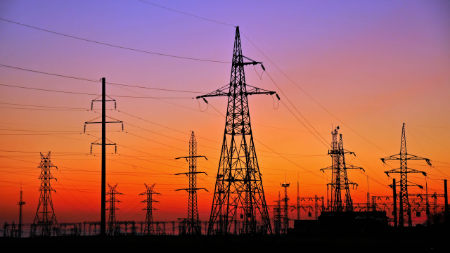Technical Article - July 23, 2019
Renewable energy: from market penetration to seamless grid integration


Written by Expert: Rubina Singh 5 min read
The energy landscape is undergoing an unprecedented transformation globally, propelled by the trends of decarbonisation, decentralisation and digitisation.
In order to phase out fossil fuels completely and tackle global warming, an important behavioural shift is required. Several countries have their own goals with different time lines, driven by the European Union with its strategy for a climate-neutral Europe by 2050 and various national and international legislations and policies. For example, Germany is expected to shift the primary energy consumption from over 80% to below 10% and replace it with renewable alternatives. The UK passed a landmark legislation recently committing to net-zero carbon emissions by 2050. However, to do so in a sustainable way would require completely replacing fossil fuel sources by renewable energy. We’ve seen solar PV enter a new era, becoming the undisputed leader in renewable power and ensuring capacity growth. Concurrently, renewables are expected to keep growing and could account for 63% of the total global electricity generation by 2040 according to the Sustainable Development Scenario. At the same time, Asian countries are leapfrogging with China and India expected to account for over 40% of net renewable additions by 2040.
But what happens when there is excess wind and solar energy generation relative to demand or not enough produced electricity to meet the peak demand?
Grid instability can cause major financial loss to industrial companies especially in the case of blackouts. How do we integrate renewables with the existing and historically-established power grid while preventing these issues? In order to truly achieve a decarbonised future, seamless grid integration of renewables and other emerging technologies will be crucial. Overcoming the old paradigms is a fundamental step to drive change and secure a fast and efficient transition to renewables.
At the 4th Solar Impulse Foundation Experts' Challenge in Munich, industry Experts from various countries converged to discuss this issue and 3 main themes emerged:
- Trend towards a decentralised system comprising of renewables, smart grids and EVs, enabled through data and smart technologies.
With an increase in both decentralised and distributed renewable technologies (solar, wind, storage, etc.) come the challenges of addressing intermittency, stabilising the grid and optimising the numerous distributed assets. Smart grids can enable more efficient and reliable demand/supply management, and optimise energy usage through the application of data and digitisation.
“Electric Vehicles (EVs) will be a major influence for stabilising the power grid and power-efficient transportation”
Schekeb Fateh - Business Development at Miromico.
With the exponential growth of EVs and trends in the electrification of heat, smart technologies can also play a crucial role in managing the additional demand on the electricity networks due to EVs and heat pumps. However, EVs are essentially batteries on wheels and can unlock additional flexibility for the grid and create new revenue opportunities. There was debate among the experts on whether there will be enough performance improvements and cost reduction of batteries over time for them to be profitably integrated in the power grids. It was also pointed out that batteries could follow a trend similar to the one seen in the PV industry with significant fall in prices over the years.
Nevertheless, there was agreement that (the batteries in) EVs could contribute towards maintaining grid stability and mitigate the need for building large-scale static batteries. As a practical example, batteries will allow customers to store energy from solar panels and use it during periods of peak demand to reduce energy costs while potentially also monetising it through demand side response (DSR) and vehicle-to-grid (V2G).
- Need for solutions based on market mechanisms and increased investment.
In order to enable long-term decarbonised and decentralised energy markets, solutions based on market mechanisms need to be developed while minimising the risk of stranded assets. However, to achieve these goals, investments are needed today to drive costs down, incorporate new innovation and drive economic growth. But who will pay for the disruption of the energy market? Receiving substantial investments has sometimes been a challenge and innovative financing models are required along with governmental/ regulatory action (e.g. through a carbon tax or an exhaustive CO2 certificate trade) to reduce investor's risk.
- Emergence of new business models and new innovations.
Today we see a move away from community and asset-based systems to customer centric and platform-based energy markets. As the world becomes more connected and digitised, data and intelligent systems will also play a bigger role in the energy systems. Startups and new players are developing innovative/novel business models, service platforms leveraging IoT and data, and new technologies. Nevertheless, the Experts could not agree on the specific role data will play in the energy industry. Incumbents and new players in the energy industry are also re-evaluating their roles in the future energy markets to determine what roles they can play. For instance, the energy and transport industry are experiencing more overlap with the rise of EVs, which can enable a plethora of new opportunities and use cases that might not exist yet.
In conclusion, the energy landscape is transitioning all over the world. In order to create a seamlessly integrated low carbon energy system, an increased focus is needed on enabling flexibility to successfully manage and optimise the various distributed energy assets. This requires a collaborative approach between the different industries as there is increasing convergence between the energy, transport, heat and digital sectors. Through cross-sector collaboration we can collectively unlock new opportunities and accelerate our move towards a low carbon future.
The following authors contributed to this article:
- Schekeb Fateh - Business Development at Miromico and Advisory Expert at Solar Impulse Foundation.
- Dr. Thomas Walter - Managing Director Easy Smart Grid GmbH
- Jakob Kretzinger - Energy Engineering and Business Administration at EPFL.
- Sabrina Cipullo - Expert assessment coordinator at Solar Impulse Foundation.

Written by Expert: Rubina Singh on July 23, 2019


